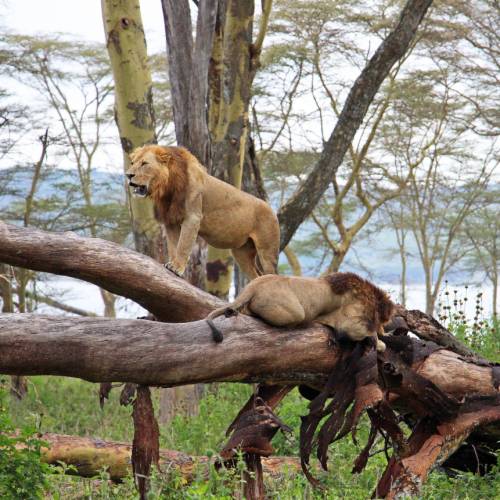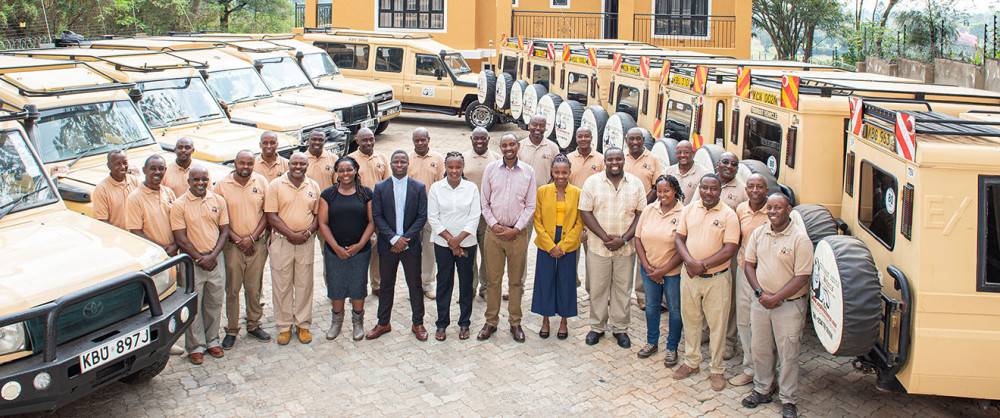Good Suggestions For Picking Kenya Safaris
Good Suggestions For Picking Kenya Safaris
Blog Article
What Health And Safety Precautions Do I Need To Be Aware Of When On Holiday In Mombasa?
It is essential to take health precautions when you visit Mombasa in Kenya. This will help ensure you have a great time and remain secure. Here are some key health considerations.
1. Vaccinations
Routine Vaccinations: Ensure that you are up-to-date on routine vaccines such as measles-mumps-rubella (MMR), diphtheria-tetanus-pertussis, varicella (chickenpox), polio, and your yearly flu shot.
Hepatitis A It is recommended for everyone who travels due to the possibility of drinking water and food being affected.
Hepatitis B is recommended for those who may be exposed by sexual contact or medical treatment with bodily fluids.
Typhoid : This illness is important for those staying with family members or close friends, travelling in rural or small towns areas, and also for those who are prone to eating out.
Yellow Fever - A vaccination certificate may be required by travelers who arrive from countries that are susceptible to yellow Fever transmission. Make sure to check the most up-to-date requirements.
Rabies: Travelers who are at risk of animal bites during outdoor activities like camping, hiking or caving must be aware of this.
2. Malaria Prevention
Antimalarial Medication: Mombasa is a malaria-endemic region. Talk to your doctor regarding the antimalarial medicines suitable for you.
Make sure to use insect repellents with DEET and wear long sleeves and long pants. This is particularly important at night. If you do not have an air-conditioned and well-screened hotel room, you can sleep with the protection of a net.
3. Food and Water Safety
Drinking tap water is not recommended as are ice cubes. Avoid tap water, ice cubes, as well as drinks that aren't sealed.
Only eat foods that are cooked properly. Avoid raw or undercooked seafood, meats, and raw fruits and vegetables that have not been washed. Avoid street food. Instead, select restaurants that are reputable.
4. Diarrhoea Traveler
Prevention Measures: Maintain good hand hygiene by washing hands frequently using soap and water or using a hand Sanitizer. Avoid drinking and eating from non-reliable sources.
Take along medicines like Imodium and oral rehydration sodiums. If you are experiencing severe symptoms you should consult your doctor about antibiotics.
5. Sun Protection
Use a sunscreen with at least a 30 SPF. Reapply often, particularly after swimming or sweating.
Protective Clothing: Wear hats, sunglasses and light, long-sleeved clothing to minimize sun exposure.
6. Heat and Hydration
Keep hydrated: Drink lots of fluids, particularly water, to prevent dehydration. Avoid excessive alcohol and caffeine as they can lead to dehydration.
Avoid excessive exertion. Regularly take breaks, especially during the hottest part of the afternoon. Be sure to avoid heat stroke or exhaustion by seeking shade and cool places.
7. Safety in Water Activities
Swimming in Areas Delineated: Be aware of local recommendations and the swimming conditions as well as any potential dangers, like a strong flow.
Be aware of dangerous marine animals such as sea urchins, jellyfish. Wear watershoes while walking on water that is shallow.
8. Medical Care and Insurance
Travel Insurance: Ensure you have a comprehensive travel insurance that covers medical and evacuation emergencies.
Local Medical Services: Learn the exact location of medical facilities that are trusted in Mombasa. Many major hotels provide details about hospitals and doctors in the vicinity.
Make sure you have enough medication enough to last the entire duration of your excursion.
9. Contacts in Emergency Situations
You can find the details of your country’s embassy in Kenya by contacting them.
Local Emergency Numbers:
Enjoy your time in Mombasa and reduce the risk by taking these easy health tips. Follow the top rated kenya day tours for blog advice including african safari packages, luxurious african safari, kenya safaris and tours, safari tour, kenya safari holiday, safari trips in africa, tours & safaris, tours safari africa, kenya safari holiday, travel & tours company and more.
What Factors Regarding The Weather Should I Be Aware Of While Visiting Mombasa In Kenya?
It is crucial to be aware of the weather patterns in Mombasa prior to packing and get the most out of your time off. Here are the key conditions to be aware of:
1. Climate Overview
Mombasa is blessed with a tropical climate, with high temperatures throughout the year. Expect warm temperatures between 24degC and 32degC.
2. Seasons
The Hot and Humid Season (November to April): This period is characterized by extreme temperatures and high humidity. The peak tourist season occurs between December and January.
Long Rains: (April-June) The rainy season is characterized by severe rainfall and thunderstorms. It can become difficult to drive on roads that are muddy. The low season is upon us.
Cooler Season (June - October) Take advantage of the cooler temperatures and less humidity in this time. The general weather is pleasant, making it the perfect time for outdoor pursuits.
Short Rains (October to November) Shorter, less intense rain showers are common during this time. The rains are usually short-lived and followed up by some sunshine.
3. Packing Tips
Lightweight clothing: To remain cool and dry in humid weather take lightweight, breathable clothes such as linen or cotton.
Rain Gear - If traveling during the rainy season ensure you bring an outfit with a water-resistant coating, an umbrella as well as footwear that is waterproof.
Sun Protection: Using a sunscreen that has a high sun-protection factor (SPF) along with a wide-brimmed cap, sunglasses and light clothing covering your skin can help you protect yourself from the harsh sunlight.
Swimwear: Make sure that you bring your swimsuit while you are at the hotel pool and beaches.
4. Weather-specific activities
Beach Time: The ideal time to go to the beach is in the cooler season (June to October) when the weather is warm and the sea conditions are favorable.
The crystal clear, calm waters from November through March is perfect for snorkeling or diving, as well as other water sports.
Wildlife viewing: When the weather gets better and the sun is shining, it's a perfect time to go on safaris or safaris and wildlife tours.
5. Health Considerations
Stay hydrated. The hot and humid weather will make it necessary to drink plenty of water. Take plenty of fluids especially during your time outdoors.
Health-related diseases involving heat: Pay attention to the dangers of heatstroke or exhaustion. Make breaks in the shade, wear loose-fitting clothing and stay away from strenuous activity in the heat of summer.
6. Travel Adjustments
Traveling during the rainy season When you travel during the long rains be prepared for possible delays in travel. There may be instances where roads are not accessible and outdoor activities may be restricted.
Tropical rains may cause delays to flights. Be aware of your travel schedule and have contingency plans.
7. Environmental Concerns
Natural Hazards: Be aware to the possibility of flooding if heavy rains come down. Be aware of the weather conditions. Also, follow any local safety instructions.
Tide Awareness: Be aware that tides may vary drastically when planning beach activities. Be sure to check tide schedules for that you are safe when beachcombing and swimming.
Knowing these weather conditions will help you plan your trip and prepare accordingly, so that you can enjoy your trip in Mombasa safely. Check out the top island snorkeling in mombasa for blog advice including tour company in kenya, kenya safari holiday packages, kenya safaris and tours, africa in kenya, kenya safaris, cheap kenya safari packages, africa and safari, kenya safari beach, african safari excursions, kenya safaris and more.
What Environmental Responsibilities Should I Be Aware While I Am On Holiday In Mombasa?
When holidaying in Mombasa, Kenya, being environmentally responsible is crucial in order to safeguard the beauty and biodiversity of the area. Here are a few key environmental responsibilities you should be aware of
1. Sustainable Accommodation
Eco-friendly hotels: Choose a hotel that practices sustainability. Find eco-labels like Eco-Tourism Kenya.
Conservation of Resources: Participate in hotel initiatives to conserving electricity and water. Reuse towels and linens, turn off lights and air conditioning when they are not in use.
2. Responsible Wildlife Viewing
Respect Wildlife. Stay at the distance of animals to ensure that you do not cause disturbance to them. Your tour guide will provide you with instructions.
Avoid Feeding Animals: Feeding wildlife can disrupt their natural diet and behaviour.
Don't litter in wildlife reserves. Bring your garbage home and properly dispose of it.
3. Plastic Reduction
Avoid single-use products. Keep a water bottle that is reusable or shopping bag as well as utensils.
Encourage Local Initiatives: Take part in local beach clean-up efforts as well as organizations that work to reduce the amount of plastic pollution.
4. Water Conservation
Make use of water wisely: Mombasa experiences water scarcity problems. Switch off the water taps and take a shorter shower.
Utilize eco-friendly and biodegradable toiletries To reduce water pollution, use biodegradable and environmentally-friendly toiletries.
5. Energy Conservation
Reduce your energy use by limiting the use or air cooling. Unplug devices when they are not in usage.
Help support renewable Energy: Choose accommodations and tour operators that use renewable energy sources.
6. Sustainable Transportation
Public Transport: Cut down on your carbon footprint when you travel by public transport such as matatus, buses and other forms of public transportation.
Eco-Friendly Options: Consider renting bicycles or walking for short distances. Some areas have eco friendly taxis.
7. Supporting local businesses
Buy Local: Help support the local economy by purchasing souvenirs and foods from local vendors and artisans.
Fair Trade: Buy fair-trade certified products to ensure that farmers in the area are paid fairly.
8. Environmental Education
Learn and Share: Educate yourself about your local environment and conservation efforts. To raise awareness of what you've learned, share your knowledge with your friends and family.
Respect Local Cultural Practices: Learn and respect local customs in the area of environmental conservation.
9. Marine Conservation
Responsible Snorkeling and Diving: Avoid touching or stepping onto coral reefs. Use sunscreen that is safe for reefs to safeguard marine life.
Never dispose of waste into the ocean. Join or help in marine conservation programs.
10. Ethical Souvenirs
Avoid Wildlife Product Don't buy items made from endangered animals, like ivory and tortoiseshell.
Sustainable Materials: Select souvenirs made of recycled or sustainably produced materials.
11. Participate in conservation Activities
Think about volunteering in tourism for the community or conservation projects.
Support NGOs: Donate to or support local NGOs and conservation groups working to protect the environment.
12. Responsible Travel Policies
Small groups of travelers can minimize environmental impact.
Eco-Tours: Pick tour operators who are environmentally friendly and committed to sustainability.
Keep in mind that these responsibilities will help you to preserve Mombasa’s precious natural resources, and maintain the beauty and diversity of the area for future generations to come. Have a look at the top kenya day tours for more examples including african safari packages, kenya beach mombasa, kenya beach and safari holiday, kenya tours and travel, africa tours, safari excursions, safari trips in africa, travel tour companies, african safari kenya, african safari packages and more.